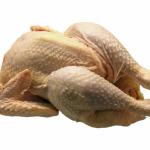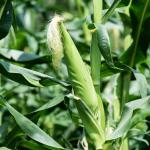Chicken is a significant source of foodborne illness.
Food & Nutrition
America's public health establishment has made a lot of critical mistakes in recent years. One of the worst has been its willingness to comply with social justice activists who are committed to minimizing or denying the dangers of obesity.
During a recent trip to Home Depot, I found myself standing next to another customer in the lawn and garden department. He was attentively looking over a container of the weed killer Roundup. "Isn't this the one that causes cancer?" he asked.
I was drawn to the article simply by its title, On Oreology, the fracture and flow of “milk’s favorite cookie.” Very clever to change rheology, the study of the flow of materials, into
For a long time, I liked eating octopus; until the day I saw a documentary and decided they were “too smart” to eat [1], and then I stopped.
The world is getting fatter, and public health experts don't know what to do about it.
Fructose is a much-maligned and misunderstood ingredient in foods.
Three hundred consumers participated in a study to test the effectiveness of educational
There's an odd disconnect between the way we talk about the causes of obesity and the solutions we employ to help people manage their weight.











